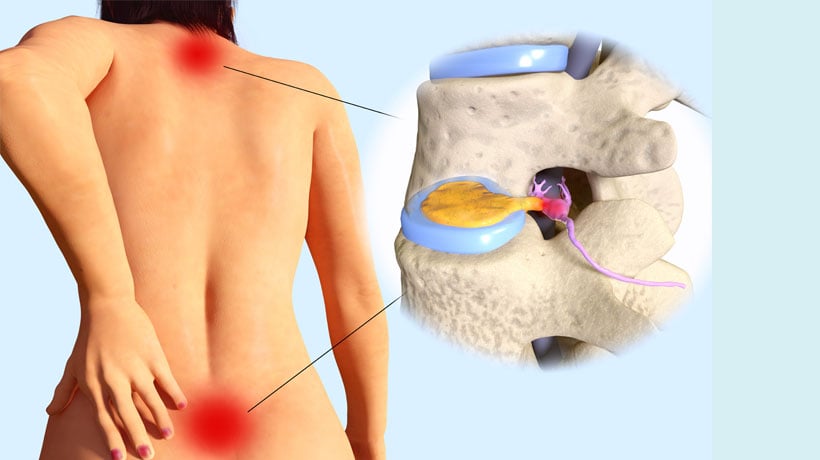If you’ve ever had a pinched nerve, you know it can be one of the most uncomfortable experiences. According to the Mayo Clinic, it happens when too much pressure is applied to a nerve by surrounding tissues. The buildup of pressure messes with your nerve function — and that’s where the pinch happens.
For some, symptoms can be mild and manageable; for others, the pain can become overwhelming. Luckily, pinched nerves usually loosen up on their own after a few days. However, if the pressure on the nerve continues, it might cause permanent damage, and your pain might become chronic. Because of this, it’s important to recognize some of the common symptoms of a pinched nerve, and know when to seek treatment.
Numbness or decreased sensation
Do you sometimes experience this feeling (or lack thereof) in an area of your body? It might be due to pressure constricting blood flow to your nerve. When this happens, your nerve cells are deprived of oxygen, and it becomes difficult for them to function properly. You might experience this numbness until the pressure on the nerve is relieved.
A sharp pain or ache
Another common symptom of a pinched nerve is a sharp pain which might radiate outward. You might feel this because of inflammation or compression in the nerve, or in the tissues around the nerve. This kind of pain should indicate that something’s up; heed it as a warning sign and reach out to your doctor.
Pins and needles
We all know that feeling: when your foot falls asleep, and as soon as you stand, it’s like you’re balancing on a bed of knives. As the Mayo Clinic explains, it’s also called paresthesia, and this tingling sensation is another hallmark sign of a pinched nerve.
Muscle weakness
Sometimes, pinched nerves might cause sensations of muscle fatigue in the affected area. It usually indicates that a motor nerve, or the nerves carrying messages from your brain to your muscle, is pinched. Generally, severe muscular discomfort should indicate that something’s not working properly and should encourage a check-in with your doctor.
Feeling that your foot or hand has “fallen asleep”
If you feel like an area of your body has gone numb and “fallen asleep” even if you haven’t applied external pressure on it, your nerve might be constricted internally by its surrounding tissues or tendons. However, even if it’s not a pinched nerve, consult this symptom with your doctor to locate a cause. It’s not a comfortable sensation, and by investigating the root of your symptoms, your pain can be treated appropriately.
Sources:
https://www.self.com/story/pinched-nerve-signs
https://www.mayoclinic.org/diseases-conditions/pinched-nerve/symptoms-causes/syc-20354746



